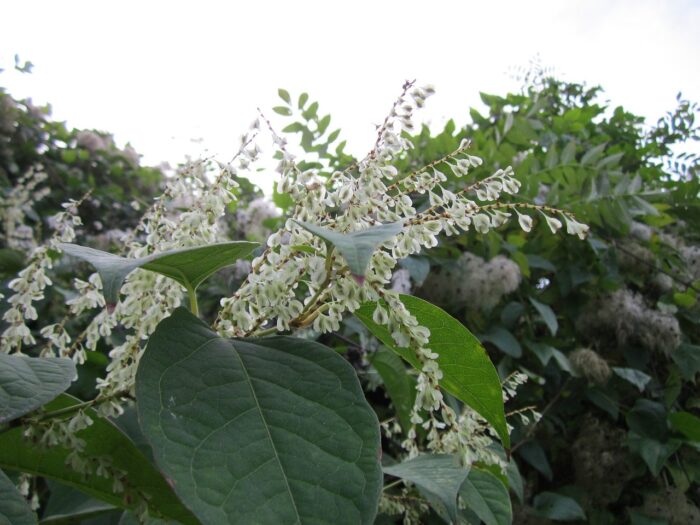Has Your Property Seller Lied About Japanese Knotweed? Here’s What To Do
Research reported by The Independent has suggested that the discovery of Japanese knotweed can have a major impact on the house buying process. It’s estimated that 75% of buyers are put off when they discover that Japanese knotweed is present. Considering the damaging effect that it can have on house prices, it’s hardly surprising that some unethical sellers might choose to lie about the presence of Japanese knotweed on their property. Those that do so risk falling foul of well-established Japanese knotweed law, which could lead to serious legal complications and may cost them more than a quick sale ever could make them.
See our outstanding reviews below to learn about some of the cases we’ve helped win.
Need help with your Japanese knotweed issue? As Japanese knotweed no-win, no-feel claims solicitor experts, we are well versed in all aspects of knotweed law and removal. Contact us today to find out how we can help you with your knotweed problem – from identification to compensation.
We can answer your Japanese knotweed questions!
Talk To UsContents
What happens if a seller lies about Japanese knotweed before the sale?
Selling a house with Japanese knotweed can be challenging. The plant is now well-documented, as well as its damaging impact on home values. Informed buyers are now much more vigilant when inspecting properties, this has led to some sellers choosing to lie about the presence of Japanese knotweed in order to push through a quick sale and thereby rid themselves of the property. These scenarios lead to a great deal of wasted time and money on behalf of prospective buyers. A prospective buyer may have arranged the sale of their existing home, paid for surveys and legal fees before discovering the Japanese knotweed and being forced to pull out of the purchase. As no contract has been signed between the two parties at this point, the seller cannot be made liable for the costs that the buyer has incurred in the lead up to the failed house purchase.
What can I do if I discover the seller has lied after the sale has been finalised?
If the Japanese knotweed infestation is discovered after the sale has been put through then the buyer is in a better position to claim for damages, as a formal contract has been signed. Those who have bought a property with knotweed may be able to claim compensation against the owner for misrepresenting the property, depending on the level of deception or negligence on the part of the seller.
Can I sue the seller for misrepresentation if they lie about Japanese knotweed?
If a seller lies about Japanese knotweed in the lead up to the sale then they may find that they have to compensate the new owner for misrepresenting the property. It’s possible to pursue a no win no fee property misrepresentation claim against a previous seller in the case that the buyer has been misled to believe that there is no Japanese knotweed present on the property, or even if the seller has failed to mention the presence of Japanese knotweed.
Can estate agents lie about the presence of Japanese knotweed?
Estate agents have an obligation to present properties as honestly as possible. They’re bound by Consumer Regulations that have been put in place to ensure that agents aren’t allowed to simply lie about the homes that they’re selling. These regulations also require estate agents to inform any potential buyers about any materials facts that would affect the decision to make the purchase. Guidelines appended to these regulations stipulate Japanese knotweed as ‘material’, so an ethical, professional estate agent should not lie about its presence. If they are proved to do so then they are open to claims from the buyer dealing with them and they could be banned from working as an estate agent.
We can answer your Japanese knotweed questions!
Talk To UsWhat if a seller knows about the knotweed but is not specifically asked about it by the buyer?
One of the tenets that are often discussed when dealing with enquiries related to purchasing houses is ‘buyer beware’. The basic premise of this being that if a buyer does not ask the seller specifically about certain aspects of the house, then the buyer will not be able to claim compensation when they discover something untoward about the property. The introduction of the TA6 Property Information Form has helped to avoid situations where sellers avoid informing buyers about the presence of Japanese knotweed, however, there are still some cases where they are not used, for example in certain property auctions.
What can I do if the seller lied on the TA6 property information form?
You’ll find the Japanese knotweed related question at 7.8 on the TA6 form. It reads: Is the property affected by Japanese knotweed?
There are three options that sellers can choose: Yes, No and Not Known.
Changes were made in February 2020 to the guidance notes on this question, adding context regarding the plant, the ‘Not Known’ option and also a secondary section for sellers to provide information about whether or not a Japanese knotweed treatment or management plan is in place.
The guidance makes allowances for the fact that Japanese knotweed can be hard difficult to spot for the uninitiated, however, it stresses that ‘No’ should only be selected when the seller is ‘certain that no rhizome (root) is present in the ground of the property, or within 3 metres of the property boundary even if there are no visible signs above ground’. By selecting ‘Not Known’, the onus is put on the buyer to commission a Japanese knotweed survey to determine whether or not it affects the property.
This adjustment to the guidance also means that sellers who expressly lie about the presence of Japanese knotweed put themselves at a much greater risk of being sued as a result.
We can answer your Japanese knotweed questions!
Talk To UsWhat happens if the information provided in the TA6 form was correct when given to the buyer, but then incorrect by the time of purchase?
The seller of a property is obligated to ensure that any information they have provided to the buyer is kept up to date, right up to the day of the exchange. This means that if the seller initially reports, truthfully, that there is no knotweed present on the property and then later discovers an infestation, they are obligated by law to inform the prospective seller. There is a stipulation in the standard TA6 Property Information Form that requires the seller to inform their solicitor in the event of a change in the answer that they have initially provided. Failure to communicate this change could lead to a potential claim against the seller for misrepresentation.
If you’ve found yourself in a difficult legal situation as a result of being lied to about the presence of Japanese knotweed then our experts may be able to help you. We can find a PCA-accredited firm to get rid of your Japanese knotweed and pursue legal action to compensate you for any costs incurred. Send us a message using the contact form on the right, give us a call, or start a chat using the box below to get started.

